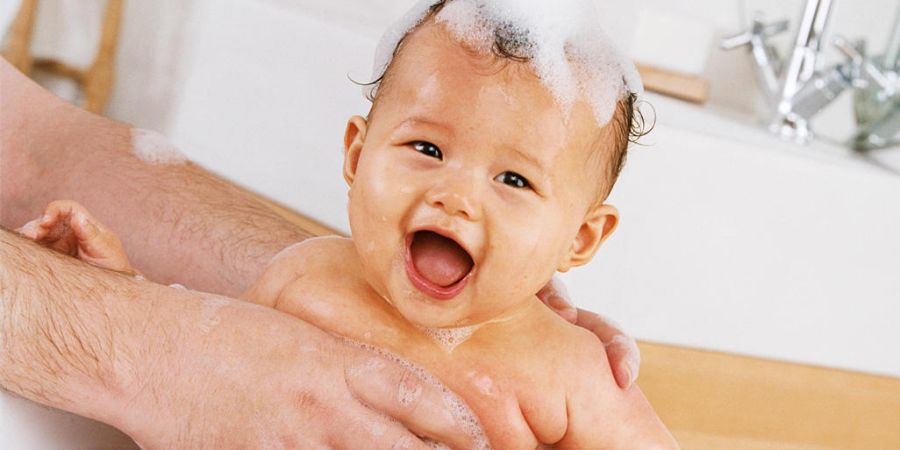

In the first days after childbirth, the woman is with the baby in the hospital. There, the nursing staff teaches her the basics of proper baby care. However, after being discharged from the hospital, a young mother has many questions regarding bathing, breastfeeding, choosing a crib, and other nuances. Let's find out the basic rules for caring for babies. In the first months of life, it is necessary to carry out a complex daily procedure to maintain hygiene.
Every morning, wipe your baby's face with a cotton pad moistened with warm water. Pay attention to the neck - milk often flows into its folds during feeding. They also need to be cleaned. Take two more discs, wet, gently wipe the eyes, moving from the outer corner to the inner corner. Use a separate disc to wipe the inside and outside of the auricles. Never use sticks to clean your ears! Gently scrub the ear canals with damp cotton filaments. Clean your baby's nose the same way. Crusts accumulate in it, which interfere with normal breathing. Remove them carefully with cotton wool soaked in water.
Don't buy too many clothes for your child. Babies grow up quickly; so many things are not needed. For the first months, it is enough to have a few sliders, undershirts, bodysuits, or little men for the house, as well as warm clothes for walking. As you grow older, gradually buy the necessary wardrobe items. If you are swaddling a baby, then read on how to do it correctly.
Disposable diapers are changed every 3-4 hours during the day and once at night. After a bowel movement, this must be done, even if the diaper was changed quite recently. Reusable cloth or gauze diapers are changed after each wetting. To avoid the appearance of diaper rash, give your baby a few minutes to lie down with a bare bottom before each diaper change. There are special creams that protect the skin from diaper rash. They are applied to the buttocks and groin folds before putting on the diaper.
You need to take care of the umbilical wound until it heals completely. This is best done after bathing. Moisten a cotton swab with hydrogen peroxide, gently blot the wound, and then lubricate it with brilliant green or any other antiseptic. Zelenka is a classic option. It disinfects and dries the wound well. If the navel does not heal for a long time and the wound looks strange, see your doctor.
In babies, nails proliferate. Once a week, they need to be cut so that the baby does not accidentally scratch himself. For work, use special children's nail scissors with rounded ends. You can get them at a baby store. It is best to carry out the procedure when the child is asleep and not waving his arms.








